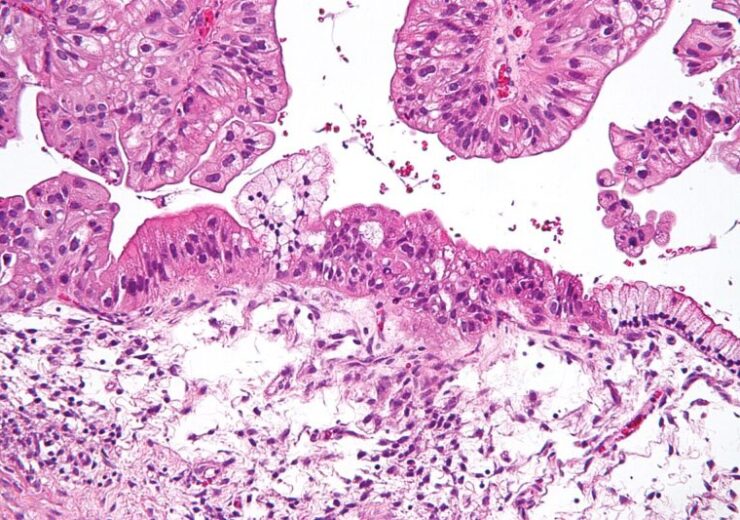The company will continue to assess the entire dataset of the late-stage study to determine the drug candidate's further development steps

Aravive’s batiraxcept fails to meet objective in a late-stage clinical trial in ovarian cancer. (Credit: Nephron/Wikimedia Commons)
Oncology company Aravive said that batiraxcept has not met its primary endpoint of progression-free survival (PFS) in a Phase 3 study in patients with platinum-resistant ovarian cancer.
Batiraxcept did not achieve the primary endpoint in the pre-specified subset of patients in the AXLerate-OC study who are naïve to prior treatment with the investigational drug.
Aravive said that it will continue to assess the entire dataset of the late-stage study to decide on the next steps in the development of the drug candidate.
Formerly AVB-500, batiraxcept is said to be an ultra-high affinity decoy protein that attaches to the GAS6 ligand. This prevents the growth of metastasis and tumour and restores the sensitivity to anti-cancer agents, as per the clinical-stage oncology company.
AXLerate-OC is a global, randomised, double-blind, placebo-controlled adaptive trial that recruited 366 patients to assess the safety and efficacy of the drug candidate.
Half of the participating ovarian cancer patients had earlier received bevacizumab before joining the study.
The secondary endpoint of the late-stage trial is overall survival.
The median PFS in the batiraxcept plus paclitaxel group was 5.4 months in the bevacizumab- naïve population, which was the same in the paclitaxel arm.
In the entire patient population, the median PFS in the batiraxcept plus paclitaxel group was 5.1 months, in contrast to 5.5 months in the paclitaxel group. These variations were all statistically identical, said the oncology company.
Aravive president and CEO Gail McIntyre said: “We are conducting additional analyses on the AXLerate-OC Phase 3 trial to further evaluate the results of this study and determine the best path forward with our two other planned indications in renal cell carcinoma and pancreatic cancer.
“We want to thank the patients who participated in this trial, the clinical investigators, and the Aravive team for their hard work, as we continue to pursue our goal of finding innovative cancer treatments for patients in need.”
